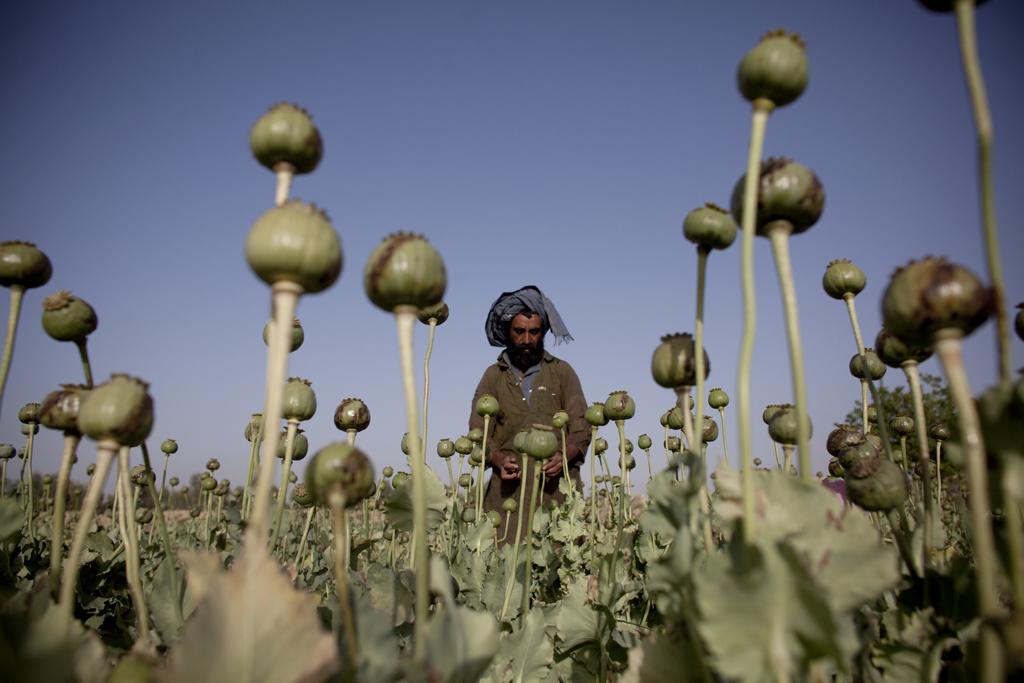Opium harvest falls in Afghanistan as cultivation rises, UN report finds
An Afghan man cultivates poppy bulbs at a farm in early May, 2011 near the city of Kandahar, Afghanistan. Despite aid money to reduce poppy harvesting, it remains a challenge within Afghanistan.
Opium harvesting is down by a third in Afghanistan, even as the cultivation of poppies rises 18 percent, according to a new report by the United Nations Office of Drugs and Crime (UNODC).
The increase in the crop's growth is a result of the rising price of opium, which is in part due to the poor harvest, caused by bad weather and disease, BBC News reported.
Despite the decrease in production of "black gold" still earned the Taliban an estimated $700 million this year, according to the UN report, and billions more for the drug's traffickers.
The increase comes even as the government intensified its attempts to eradicate the crop: their efforts wiped out 10,000 hectares of poppy in 2012, BBC reported.
"People are still hedging for an insecure future, so there is lots of speculation. Prices quieted in recent months but still are double what the normal economic price should be," said Jean-Luc Lemahieu, Afghanistan director for UNODC, the Guardian reported.
"We are afraid that eventually lower production this year, combined with the still speculative mood overall, mean prices will inflate, which in turn will encourage more production in the coming year," he added.
Some experts worry that the upcoming departure of most NATO-led forces by the end of 2014 will cause a sharp uptick in poppy growth in Afghanistan, which already produces 90 percent of the world's opium supply, Reuters reported.
More from GlobalPost: Myanmar’s war on opium
We want to hear your feedback so we can keep improving our website, theworld.org. Please fill out this quick survey and let us know your thoughts (your answers will be anonymous). Thanks for your time!
